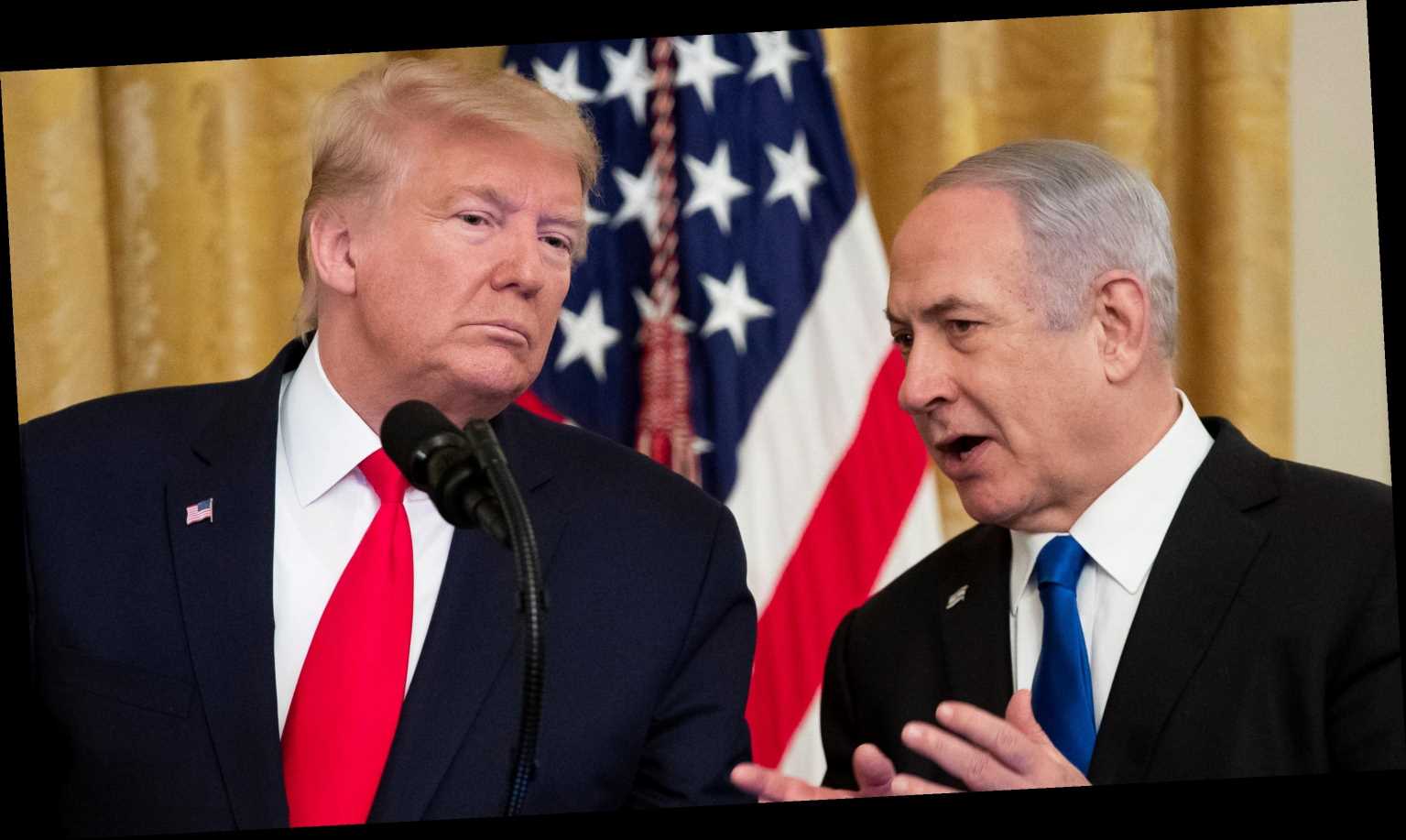On Tuesday President Trump released details of the long-awaited “deal of the century” Mideast peace plan. The 80-page document, the product of an effort led by presidential advisor and son-in-law Jared Kushner, takes the comatose peace process in a bold new direction. But whether the plan can succeed depends largely on if Palestinians are willing to give peace a chance.
The new approach acknowledges the changes that have taken place in the region, especially the new facts on the ground since the 1967 Six Day War that gave Israel physical control over Jerusalem, the West Bank and Gaza. This is no “land for peace” approach, like the one tested in the 2005 Israeli withdrawal from Gaza, which resulted in the strip becoming a rocket launching pad for Hamas. Perennial stumbling blocks like land swaps, the Palestinian right of return, and Palestinian sovereignty over the eastern part of Jerusalem have been swept away. Instead, Palestinians are being presented with a series of steps establishing a path for sovereignty, with a capital on the outskirts of Jerusalem, and control of most of the land they claim is occupied by Israel.
Our shifting relationship with Israel
The new plan implicitly recognizes that the political context of the Israeli/Palestinian dispute has changed markedly in the last ten years. President Obama had a contentious relationship with Israel’s Prime Minister Benjamin Netanyahu and pushed back against the special relationship between the United States and Israel more than any of his predecessors. At the same time, Obama did not inspire confidence among the Sunni Arab leaders whose buy-in is necessary for any peace plan to be successful. Obama supported the Arab Spring movement and backed the Muslim Brotherhood when it took down the Mubarak regime in Egypt, which alarmed Arab rulers in Saudi Arabia, Jordan and elsewhere who have long regarded the Brotherhood as a destabilizing force. As well, Obama sought rapprochement with Iran, a strategic and sectarian competitor to the Sunni Arab states in the Gulf. Thus, neither Israel nor the Arab states could view the United States as a trusted partner to maintain the kind of stability necessary for a peace plan to work.
President Donald Trump and Israeli Prime Minister Benjamin Netanyahu at the White House on Jan. 28, 2020. (Photo: Michael Reynolds/epa-EFE)
President Trump on the other hand has shown himself to be a reliable partner to the key players. He has a long-standing relationship with Netanyahu, he stood by Saudi Crown Prince Mohammed bin Salman through the controversy over the 2018 murder of journalist Jamal Khashoggi, and has backed the government of Abdel Fattah el-Sisi in Egypt during its crackdown on the Muslim Brotherhood it ousted in 2013. If Saudi Arabia and Egypt throw their weight behind the plan it will have a much greater chance of moving forward, and the United States will rely heavily on them and other countries in the region to actually implement it should the Palestinians come to the table.
A personal fear: War with Iran is terrifying prospect for Americans with family in the Middle East, like me
President Trump has also shown that he is willing unilaterally to abandon failed frameworks of the past. Most notably he moved the United States embassy in Israel from Tel Aviv to Jerusalem, something promised by three previous presidents, and recognized united Jerusalem as Israel’s capital. He also recognized Israel’s sovereignty over the Golan Heights, which the Jewish State captured from Syria in 1967 and annexed in 1981. Critics said that these moves would make future peace deals impossible, but what they signaled was that the president was willing to use his leverage to dislodge the stalled process and make those who rejected negotiations pay a real price. These moves were also long overdue recognitions of the reality that Israel would never hand over East Jerusalem or Golan, so those issues might as well be taken off the table.
A lot rides on the Palestinians’ willingness to cooperate
However, like the president’s diplomatic breakthrough in North Korea, the challenge will be the plan’s implementation. The Palestinian Authority rejected the new plan even before it was announced, and then again afterwards for good measure. This was expected, but the Abbas government cannot be the mule in the stall ignoring the changes going on around them. By refusing to negotiate even using the plan as a baseline subject to change, the Palestinians are saying the really aren’t up to the task of reaching a settlement.
Israel settlements: Donald Trump proves he’s the ‘King of Israel’
President Trump’s posture is a classic take it or leave it. “Without [the Palestinains], we don’t do the deal and that’s okay,” he said. “If we do, it’ll be a tremendous tribute to everybody. And if we don’t, life goes on.” For the Palestinians, life going on means diminishing control of territory, stifled economic development, faded relevance on the diplomatic stage, and generally watching as the world moves on without them. The status quo is not ideal for the United States, Israel and the Arab states, but it is not intolerable either. The same cannot be said for the Palestinian Authority. Moving the peace plan forward to the negotiation stage would be a positive development for everyone involved. If the plan is DOA, the biggest losers will be the ones who are making peace impossible.
James S. Robbins, a member of USA TODAY’s Board of Contributors and author of “Erasing America: Losing Our Future by Destroying Our Past,” has taught at the National Defense University and the Marine Corps University and served as a special assistant in the office of the secretary of Defense in the George W. Bush administration. Follow him on Twitter: @James_Robbins
You can read diverse opinions from our Board of Contributors and other writers on the Opinion front page, on Twitter @usatodayopinion and in our daily Opinion newsletter. To respond to a column, submit a comment to [email protected].
Source: Read Full Article
